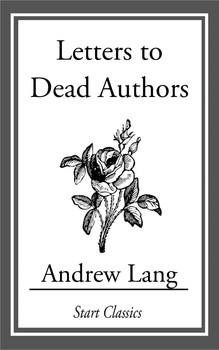LETTER–To Omar Khayyam
byLetter to Omar Khayyam opens not with formality, but with a breeze—the kind that stirs rose petals over your resting place, reminding us how you taught the world to notice what fades. These petals, caught mid-fall, echo the very verses that made you unforgettable. You did not plead with eternity or argue for paradise. Instead, you toasted the present with a full cup, choosing laughter over longing. Your words, carved in the wine-drenched air of Persia, still carry the scent of warmed earth and distant stars. Life, as you painted it, was not meant to be solved—it was meant to be tasted. Under each bough’s shade, you found a universe of questions and let them rest beside the bread, the jug, and the friend. This way of seeing the world, without demand, brought dignity to uncertainty and charm to even the dust we’re destined to become.
You made it clear—heaven and hell were too rigid to contain truth, and belief without wonder was a form of blindness. No fire was feared, no bliss was begged; instead, you asked if the clay vessel should tremble before the well that shaped it. This single image—of the pitcher and its source—summed up more than religion could ever declare. Death, for you, was not a punishment nor a prize. It was simply the closing of a circle, the cooling of wine, the silence after music. And that silence was not feared but accepted. In your vision, we do not rage at endings, but tip our heads and drink while the glass is still full. To question divinity was, in your world, a kind of reverence—not of dogma, but of awe. Your philosophy danced at the edges of faith, not to dismiss it, but to rescue it from certainty.
Your quiet defiance, wrapped in lyric and metaphor, placed you among those few who truly see time as it is: vast, impersonal, and patient. Where others offered promises, you offered presence. You did not write for power or legacy; you wrote as a man watching the moon rise for the thousandth time and still finding it worth mentioning. Your quatrains have long outlived the empires they passed through. Though you are laid in Persian earth, your thoughts have crossed deserts, libraries, and languages, teaching countless readers to live a little more lightly, to sigh without shame, and to toast the day without apology. Your poems are not merely translations—they are reincarnations. In every tongue that dares to recite you, your voice is reborn.
It is strange, then, to place your serene wisdom beside the clamor of the West’s iron-clad history. The blood-soaked fields where Harold fell—what contrast they present to your garden of verses. There, men chased crowns through mud and ash; here, you chased clarity in the bottom of a glass. While swords clashed on the hills of Senlac, you looked up and wondered if the stars would remember us at all. You did not need a throne to feel immortal. Where some carved their names in stone, you let yours dissolve into the wind, trusting that truth has its own memory. And indeed, centuries later, you are remembered not for conquering land but for conquering doubt with calm.
Even now, your voice hums in the background of a world too often drunk on its own importance. You remind us that permanence is not the goal, that to live well is to live fully—even if only for a moment. You ask us to pause and sip the day. To stop pretending we understand the afterlife when we have not yet understood our afternoon. The earth, you said, will reclaim us, and that should not be mourned. Rather, it should be marveled at. If we are vessels, then let us be filled. If we are dust, then let us shimmer in the light before we settle. This perspective is not fatalism—it is freedom.
You gave beauty a backbone. Your doubts never dimmed your devotion to wonder. In a time when certainty is often weaponized, your gentleness is radical. You wrote of the wine not to escape the world, but to savor it. There was no shame in being human—only urgency to do it well, and with a smile. And so, this letter is not a tribute of mourning. It is a thank-you for your clarity, your courage, and your cups raised high in the face of silence. Let the petals fall, Omar. The breeze remembers where to find you.

